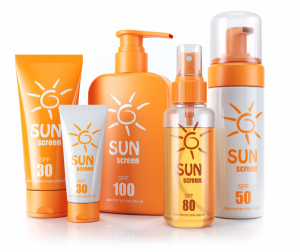 Medical expense accounts can help you save on all kinds of healthcare costs. Here are some you may not know about yet.
Medical expense accounts can help you save on all kinds of healthcare costs. Here are some you may not know about yet.
HSA, FSA, and HRA can typically be used for:
- Medical expenses: Doctor visits, surgeries, prescriptions, dental and vision care, and mental health services.
- Over-the-counter (OTC) medications: Many OTC medications, including pain relievers, allergy medications, and cold remedies, are now eligible.
- Medical equipment: Items like crutches, wheelchairs, and diabetic supplies often qualify.
- Qualified medical transportation: Expenses related to getting to and from medical appointments
- Women’s healthcare products: As of 2020, many women’s healthcare and hygiene items—including pads and tampons—were added to the list. Birth control and other contraceptives also count as qualified medical expenses with a prescription.
- Sunscreen: If you buy sunscreen with a sun protection factor (SPF) of 15 or higher, you can pay for it with your FSA or HSA account.
- Health insurance premiums: In some cases, you can use HSA or FSA funds to pay for COBRA premiums or health insurance premiums during periods of unemployment.
- Alcohol or drug treatment: If you need treatment at a hospital for alcohol or drug abuse, you can cover those costs with your FSA or HSA. That includes meals and a treatment center stay. You can also include rides to and from meetings for groups like Alcoholics Anonymous.
Expenses that might be covered, but check your plan:
- Long-term care: Some plans may cover long-term care expenses, but this is often limited.
- Cosmetic surgery: Generally not covered unless medically necessary.
- Weight loss programs: May be eligible if medically supervised.
- Gym memberships: While some plans cover gym memberships, it’s often dependent on specific medical conditions or doctor referrals.
Important Considerations:
- Keep receipts: You’ll generally need receipts to claim reimbursement for your purchases.
- Check eligibility: Not all items are covered, so verify with your plan administrator.
- Maximize your savings: Use your accounts strategically to reduce out-of-pocket costs.
Additional Tips:
- Shop around: Compare prices for medical goods and services to maximize your savings.
- Take advantage of online resources: Many health insurance providers offer online tools and resources to help you understand your coverage.
- Consult with your healthcare provider: Your doctor can recommend treatments and products that may be eligible for reimbursement.
By understanding the nuances of HSAs, FSAs, and HRAs, you can make informed decisions about how to use these accounts to your advantage and maximize your healthcare savings.

